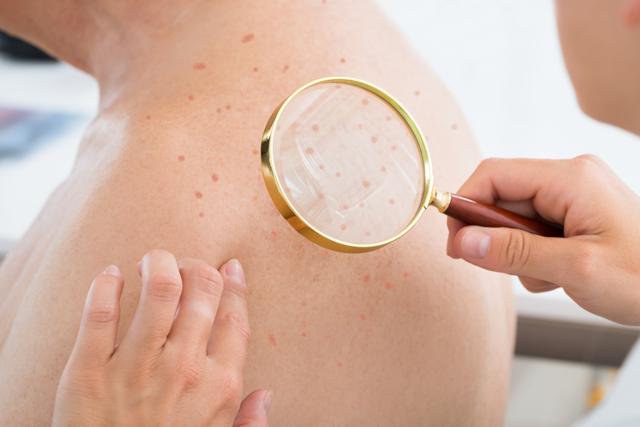
It is not just about itchy skin: Know surprising truth about Atopic Dermatitis as Eczema is on the rise in India
6 months ago | 5 Views
Did you know that Atopic Dermatitis, commonly known as Eczema, affects millions globally, with cases in India doubling over the past 20 years? Despite its prevalence, many myths persist—like the belief that it is caused by poor hygiene, or it only affects children.
It is time to set the record straight and uncover the truth as Atopic Dermatitis is not just a skin issue; it can impact anyone, regardless of age or lifestyle. Let us dive into what really causes this condition and how you can manage it effectively.
Living with Atopic Dermatitis poses numerous challenges, with relentless itching disrupting sleep, concentration and overall well-being but despite these hurdles, there is hope on the horizon. Ongoing research has led to the development of targeted treatments, offering help for individuals grappling with severe, treatment-resistant forms of the condition and these advancements open new avenues for relief and an enhanced quality of life.
In an interview with HT Lifestyle, Dr Sushil Tahiliani, MD, DV&D, Consultant Dermatologist at Hinduja Hospital and Medical Research Centre in Mumbai, shared, “In my observations, I've encountered a 3-4% of individuals living with Atopic Dermatitis, often unaware of both the nature of their condition and the available treatment options. It's disheartening to witness so many with unmet needs in managing this ailment. However, with recent advancements, targeted therapies offer newfound hope, providing not just relief but also the promise of better skin and improved quality of life for those enduring the challenges of Atopic Dermatitis.”

The following are myths vs facts one should keep in mind if they have been diagnosed with Atopic Dermatitis -
1. Myth: Atopic Dermatitis is contagious.
Fact: Contrary to common belief, Atopic Dermatitis (AD) is a genetic condition and not communicable. Contact with someone diagnosed with AD does not result in transmission of the condition. It occurs due to an overactive immune system that disrupts the skin barrier, making it itchy and dry. Environmental factors can then trigger flares or worsen the symptoms. It's crucial to understand that AD is not contagious, and one cannot "catch" it from another person.
2. Myth: Children outgrow AD.
Fact: While it's true that some children may see improvement in their symptoms as they age, not all cases of AD resolve by adulthood. It's essential to prioritise skincare and adopt preventive measures to minimize flare-ups. Seeking medical advice for persistent symptoms is crucial, as healthy skincare habits play a significant role in managing AD effectively.
3. Myth: Everyone has the same triggers for AD.
Fact: There is a misconception that the triggers for AD are universal. However, what causes flare-ups can vary significantly from person to person, influenced by factors such as individual skin sensitivity and stress levels. Seeking professional diagnosis and personalised treatment plans are essential to identify and address specific triggers effectively.
4. Myth: AD is just a skin problem.
Fact: AD is more than just a skin issue – it affects your entire well-being. It can disrupt daily life, making it hard to focus on work, school, or even enjoy time with friends and family. The constant itching and discomfort can lead to stress, anxiety and even depression. Research shows that people with AD are more likely to experience other health problems like obesity, heart disease and diabetes. It's important to take AD seriously and understand that it has a deep impact on both physical and mental health.
5. Myth: Home remedies can cure AD.
Fact: While home remedies like coconut oil may offer temporary relief by moisturising the skin and reducing itching, they do not cure AD. AD, like other chronic conditions, requires a thorough medical assessment and appropriate long-term treatment. Home remedies can complement prescribed treatments but should not be relied upon as sole solutions for managing AD effectively. Regular check-ups and following your doctor's advice are key to controlling the condition in the long run.

Understanding Atopic Dermatitis empowers individuals to manage their condition effectively and live more comfortably. With ongoing advancements in treatment options, there is renewed hope for a smoother, itch-free life and a brighter, healthier future!
HOW DID YOU LIKE THIS ARTICLE? CHOOSE YOUR EMOTICON!
# Skin # Skincare # HealthySkin




















